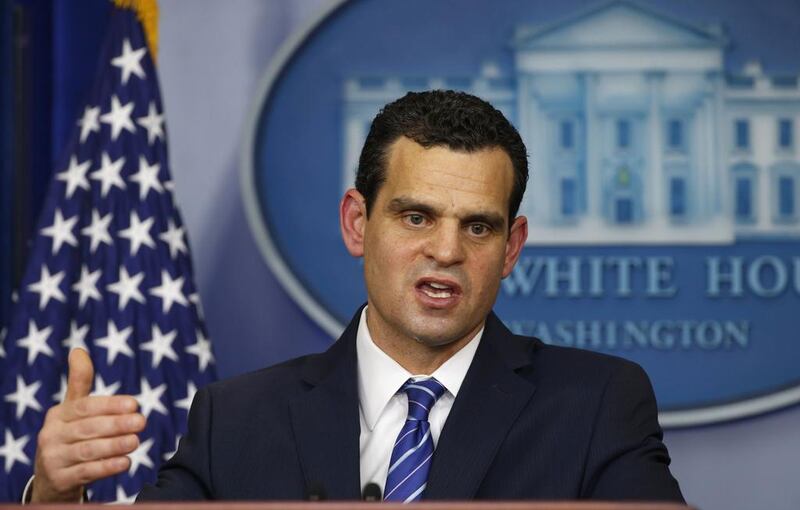NEW YORK // The new joint US-UAE financial counter-terrorism task force will be focused on combating extremist fund-raising and financial networks in the region, Abu Dhabi’s ambassador in Washington has said.
The initiative comes as the US steps up efforts to choke off money flowing to ISIL from individual supporters, its oil profits and its access to the international banking system.
“The task force was created specifically to target terror finance in the region,” Yousef Al Otaiba said, through a spokesperson.
The Gulf and Turkey are the two regions US financial counter-terrorism officials say are key to degrading ISIL's finances, outside of Iraq and Syria.
The Gulf is a hub of private fund-raising and is also home to banking infrastructure that offers the potential for money laundering and access to the international financial system, while Turkey is a source of ISIL oil profits. “The regionally focused aspect of the task force simply has to do with the US wanting to work more closely and more effectively with these countries in countering ISIL financing,” said Lori Plotkin Boghardt, a Gulf politics expert at the Washington Institute for Near East Policy.
Detailing the US strategy for the first time last week, David Cohen, the US Treasury’s under secretary for terrorism and financial intelligence, said “we have made no secret over the years of our concerns with financing for terrorist organisations coming out of the Gulf. We have made some significant progress in the Gulf but obviously there is more work to be done.”
Mr Cohen said the UAE is “steadfastly committed to preventing funding for ISIL, for Al Nusra Front [and] we have a very good close relationship with the Emiratis in combating terrorist financing”, and announced for the first time that the two countries have established a joint task force.
The focus of efforts to stem financing in the Gulf is likely to centre on Kuwait and Qatar, which Mr Cohen said have "more work to do" on enforcing terrorist finance laws.
Emirati officials would provide no further details on the task force, as it involves intelligence matters. A US treasury spokeswoman also declined to provide more information.
But Mr Cohen, in his remarks last week in Washington, provided a broad idea of the role the task force could play in attacking ISIL’s financial resources.
“It will require an enhanced understanding of the funding networks that we’re combating, whether it’s the oil networks, other smuggling networks, external donation networks,” Mr Cohen said, adding that the US treasury’s in-house intelligence agency will be key to “understand [ISIL’s] financial networks [and] develop financial intelligence”.
In August 2003, the US set up a similar financial counter-terrorism task force in Saudi Arabia, where a team of officials from the FBI, IRS and treasury department trained and worked with Saudi counterparts to combat financing to Al Qaeda and other extremist groups originating within the kingdom.
The Joint Task Force on Terrorist Financing, as the initiative is known, “shares information related to terrorist financing, including sharing financial leads, requests for bank records, and information on accounts”, according to a 2007 Congressional Research Service report.
Rather than expanding the Saudi-based task force, the US likely viewed the UAE as the best partner for the initiative because of Abu Dhabi’s unequivocal position on Islamist groups and, unlike other Gulf countries in the anti-ISIL coalition, it does not have domestic political factors that could complicate its participation.
Mr Cohen singled out Kuwait and Qatar for not charging and arresting ISIL and Jabhat Al Nusra financiers under existing laws who have been sanctioned by the US and the United Nations.
On Monday, Qatar told the BBC that it had strict financial controls in place and did not support extremist groups in Syria and Iraq.
The governments of Qatar and Kuwait, along with all the Gulf countries' rulers, view extremist groups as potential domestic terrorist threats, but "Qatar, Kuwait, Saudi, Bahrain … all have these very strong domestic dynamics that politically complicate to varying degrees countering ISIL and other Sunni radical group financing", Ms Boghardt said.
The UAE, however, is not hampered by such considerations and “has its own strong interest in limiting financial support to these groups”, she said. “It’s smoother sailing to set up this kind of work with the Emiratis.”
tkhan@thenational.ae





